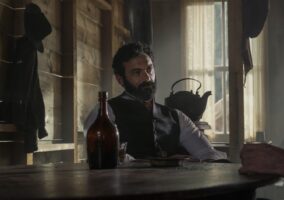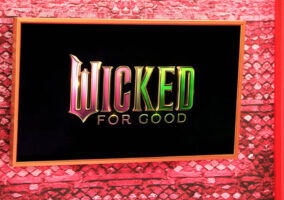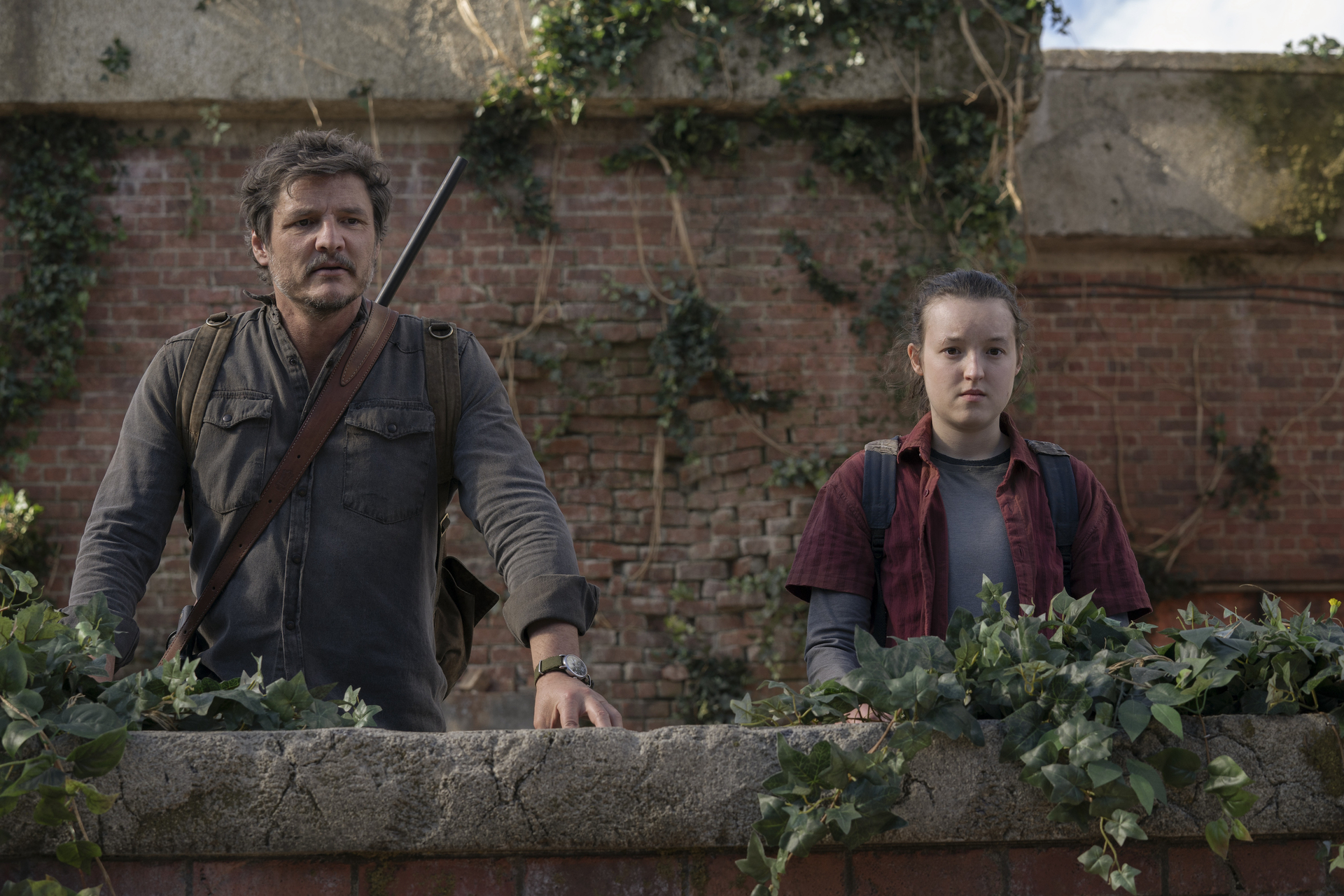
Joel and Ellie reach the conclusion to their journey and if you’ve been paying attention all season long, it’s the only possible way for it to end, given who they are, what they’ve been through, and why they mean so much to each other. We’re writing this well before the episode airs, so we can’t really predict how anyone – the gamers with expectations or the non-gaming viewers who didn’t see this coming – is reacting to the events of the ending. It’s quite possible that many found it either lacking, horrifying, or too much of a let down. Without attempting to tell anyone how they should feel about Joel’s murder spree, we think it’s pretty inarguable that The Last of Us has been taking all of us to this exact moment with every episode this season, sticking extremely tightly to a core set of themes about chosen family, grief, and morality.
Outside of Boston, Bill, a paranoid, emotionally damaged man with a penchant for violence, meets his soul mate, who opens him up to the possibilities of life. “I was never afraid before you showed up.” They spend nearly two decades going to extreme lengths to protect their love (including killing) and choose death together. In Kansas City, Kathleen, a woman consumed by grief who puts an entire community at risk and dies along with presumably dozens if not hundreds of other people because her moral code told her that threats must be killed and “children die all the time,” pursues Henry, who placed the importance of his vulnerable little brother over an entire community. “Do you think the whole world revolves around him?” she asks the collaborator as the world burns around her. “That he’s worth everything?” The story of The Last of Us is largely about the needs of the individual vs. the needs of the community and to the story’s credit, it doesn’t come down on either side of the equation. People in the story consistently place their own needs and survival over those of the people around them and you get the full range of outcomes to that, from Bill and Frank’s idyll of love to Kathleen’s resistance gone awry, to Tommy’s stranger-killing Communist compound to David’s patriarchal people-eating religion. Joel’s mass murder is simply the natural extension of everything we’ve seen so far in this world. The brilliance of The Last of Us is that every one of these communities, leaders and outcasts are given just enough fleshing out, and are portrayed by actors good enough to find the subtext between the lines, that you are forced to wrestle with the understanding of their actions. It’s a world driven by love, but love in the apocalypse is a near guarantee that other people will have to be killed in order to defend it.

With an adapted story, there’s always the question of how to take it from one medium to another and presumably from one audience to another while still keeping the original audience happy with the results. We think it’s probably more difficult to adapt the interiority of a book, with its narration and ability to enter the thoughts of any character, but adapting videogames to movies or television seems to have presented its own set of challenges, given the central fact of the player’s ability to guide the characters, not to mention the questionable quality of a great deal of the efforts. Executive producers and writers Craig Mazin and Neil Druckmann essentially dispensed with most of the gameplay aspects of the story, which means that almost all of the violence, adventuring and excitement got excised from the get-go. This could have been a disastrous idea – and we have no doubt many gamers consider it so – but to Mazin’s and Druckmann’s credit, they filled the gaps with extremely tight scripting, a core set of themes, cinematic vistas and special effects, and some of the best acting on television in the past year.
In the extremely intense opening scene, we not only meet Ellie’s mother Anna, but we get a full-on Chosen One origin story that explains just about everything you’d need to know about Ellie. Everything underlines a theme or sets you up for what’s to come. Even the occasional glancing focus on tampons and diva cups throughout the season is paid off in the birth scene, which upholds the show’s understanding that women can have needs or situations that aren’t often articulated in stories like these. Anna arrives at a safe house, evidently thinking her group will be waiting for her there. We’re told exactly nothing else about her background or situation. Pregnant, in labor, separated from a group. That’s it. Also, clearly something of a badass. The exertion of killing an Infected triggered Ellie’s birth without her even realizing it until it was over. We’re shown that Ellie’s switchblade is the knife that not only cut the cord, but killed the Infected who essentially gave her the immunity that fuels the entire story, imbuing it with a totemic power. Her mother’s first words to her were a very on-point “Yeah, you tell them. You fucking tell them, Ellie.” Ashley Johnson joins all of the show’s players in giving us a fully realized, intensely intimate vision of a character before dying memorably, but it should be pointed out that she originated the role of Ellie in the game’s voice-acting and motion capture stages, so the idea of her giving birth to Ellie is a very meta Easter Egg for the gamers. A younger version of Marlene (Merle Dandridge) arrives for a very economical few minutes in which their long friendship is referenced and Merle makes a vow to the dying Anna that she’ll care for Ellie her whole life. The first sounds Ellie heard were the Infected that determined the course of her life and the bullet that killed her mother. It’s all very Batman or Luke Skywalker, but the entire idea of it will be upended by Joel’s actions in the final minutes of the episode.
In the present day, Ellie is traumatized by her assault and presumably her own violent response to it. She’s withdrawn and quiet, nearly non-responsive to all of Joel’s attempts to bring her out of it. It would appear to be weeks later, given the weather and how hale and hearty they both seem, which implies that she’s been this way for some time. He tempts her with cans of Chef Boyardee, and word games, playing on their history together and referencing the best moments of their journey. He mentions wanting to find a guitar to start practicing again, trying to goad her into making fun of him but winding up revealing his own deepest wishes. “I could teach you,” he says with hope and a tinge of desperation, trying anything to bring his little girl out of her darkness. He starts to tell her his plans once they enter the city, but she guesses exactly what his next steps are. Every interaction either demonstrates their history together, references it or comments on it directly. This is the end of the road for them and they don’t know how to handle it or what comes next. Who are Joel and Ellie without Ellie and Joel? As in the very best quest tales, a magical creature arrives and forces our heroes to speak truths to each other. In this case, a herd of giraffes re-ignites Ellie’s sense of wonder, which allows the two of them to open up. “So, is it everything you’d hoped for?” Joel asks her, echoing his question when she got her first real view of the world outside the QZ. Picking up on it, she gives him the same reply. “It’s got its ups and downs, but you can’t deny that view.” They’re like two people about to graduate and never see each other again.
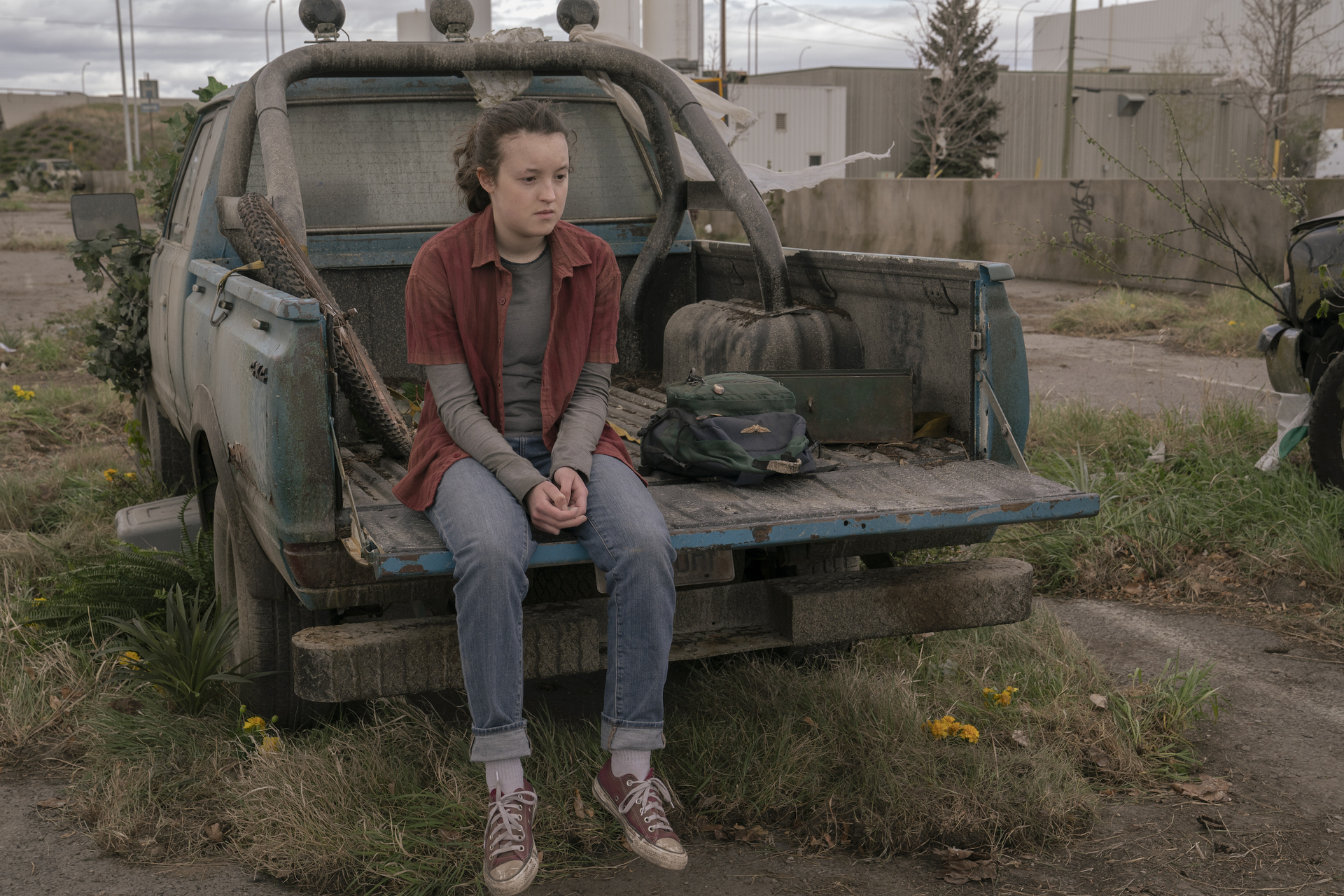
Joel drops the playful act and reveals himself to be every inch her father by expressing his concern and letting her know she’s got options. He admits that he doesn’t know if there’s anything bad waiting for them, “but so far there’s always been something bad out there.” This isn’t entirely the concerns of a father, however. He has history with the Fireflies and he doesn’t trust them at all. He tells Ellie that she doesn’t have to follow through on the plan. “After all we’ve been through, everything I’ve done. It can’t be for nothing.” She tells him that she knows he wants to protect her and that after her promise is fulfilled, she’ll go wherever he wants, once again referencing their journey: a sheep ranch, Jackson, or even the moon. “I’ll follow you anywhere you go,” she says meaningfully. His face falls at this. They’re both wonderful in this scene, but Pedro Pascal really is doing next-level work here. “But there’s no halfway with this,” she continues. “We finish what we started.” Maturity, love, growth. They nod silently in respect to each other. No further words are needed.
This causes Joel to open up to her about his head scar. “I was the guy who shot and missed,” re confesses. “Sarah died and I couldn’t see the point anymore.” He starts to tell her why he’s mentioning this, when she once again finishes his thoughts for him (and shoulders the burden of doing the emotional labor he’s not always good at). “So time heals all wounds, I guess,” she sums up. “It wasn’t time that did it,” he replies, near tears. It’s an amazing emotional payoff and Pascal and Ramsey give it everything they’ve got. He shifts the mood by asking for some puns. The brutality of the Fireflies is once again highlighted as they welcome Joel and Ellie with a stun grenade. He awakens in their hospital to Marlene who’s impressed that they made it on their own. “It was all her,” Joel tells her. “She fought like hell to get here.” “She would’ve been dead on Day One,” Marlene rightly reminds him. Slowly she attempts to break the news to him. He can’t go see Ellie because she’s being prepped for surgery. The doctors think she may provide a cure, but they will essentially have to kill her and remove part of her brain to do it. It’s amazing to us that she ever thought he would accept this news, but then again, she has no reason to know of how deep the bond is between Ellie and Joel now. She assures him that they never told her and she won’t experience any fear or pain, which is even more disturbing. She claims to understand what Joel feels because she promised Ellie’s mother that she would keep Ellie safe. “I’m the only one who understands,” but this was a fatal assumption on her part. He makes it clear that he has no intention of accepting this situation and she orders her men to escort him out of the city and to shoot him if he tries anything. The emotional brutality of this after everything they did to get there simply was never going to fly. What did you feel as a viewer at this moment? Did you want him to pick up a gun and kill everyone there? Did you question that impulse once you saw it play out? Marlene just didn’t understand what she was asking of him, imposing on him. He just opened up to Ellie about Sarah and his suicide attempt and we’re pretty sure he’s been keeping both tightly locked up for twenty years. Judge what Joel did all you want; it’s what you’re supposed to do as a viewer. But everything he said, did or happened to him in this story told us already that he could not have accepted this. It was an emotional impossibility and it had been extremely well explained. The Last of Us isn’t a show that lingers on violence, but director Ali Abbasi wanted you to see every body hit the floor. You get to feel the price Joel was paying with his soul. After killing the surgeon about to open her up, he gently cradles her head as he picks her up, just like Anna told Marlene to do when she was a baby. Marlene confronts him in the garage, the last Firefly standing and ironically, the person who’s been protecting Ellie the longest. She tells him that eventually he’ll die and she’ll either be torn apart by infected or raped and killed by raiders “because she lives in a broken world that you could have saved.” She further argues that Ellie would have wanted to do this, which is likely to be true, but if she really believed that, she should have let her make that choice instead of deciding to have her killed. She tells Joel that it’s not too late to fix this, but to her, fixing this means killing his daughter.
Ellie wakes up in the car. Joel is driving with a haunted, guilty look on his face. Pedro Pascal’s silent acting is amazing. He tells her that her journey is over, that she’s not special. The doctors had plenty of other subjects just like her and they can’t make a cure work. He goes even further and says that they’ve stopped looking for a cure altogether, just to keep her from ever pursuing this chance again. If Ellie knows she’s special, then she’ll have to live with the knowledge that she was prevented from fulfilling what felt like a destiny to her. Joel has done something terrible here and he knows it. She clearly finds his story questionable and it’s just as clear that whatever she suspects is pretty close to the truth. She knows Joel and she knows what he’s capable of when it comes to her. “I’m taking us home,” he says. “I’m sorry,” he whispers. Marlene’s death is brutal and hard to watch. “Let me go,” she begs, bleeding out on the floor. “You’d just come after her,” he says as he kills her without hesitation. This is the essence of morality in this world. Literally kill or be killed.
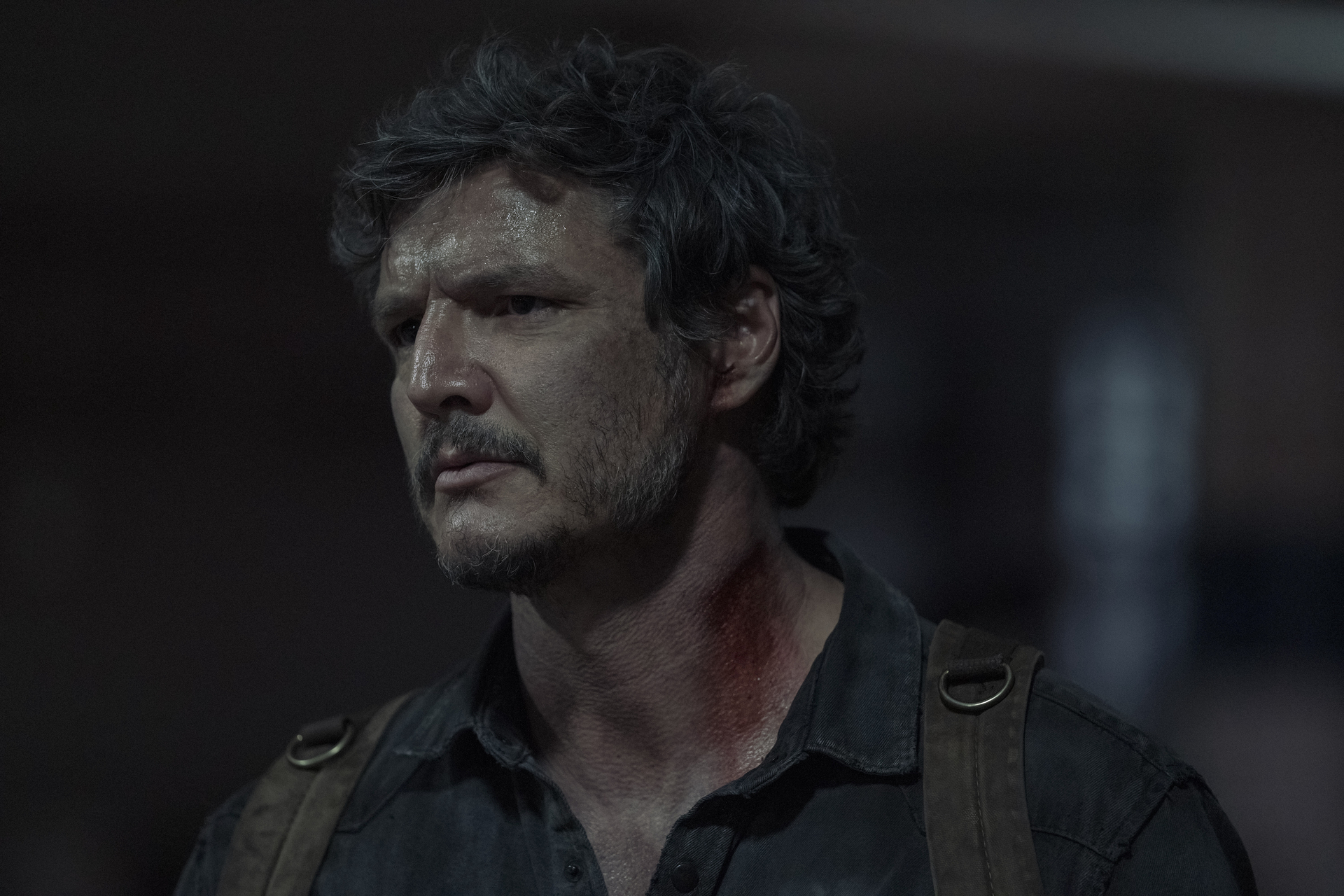
When the car breaks down, they have to hike their way to Jackson. Joel adopts a faux jovialness about the prospect of hiking with her again and tells her more about Sarah, whose ghost has driven all of his actions this episode. “She would’ve liked you,” he says, although he notes that they weren’t very similar. He says that Ellie would have made her laugh. She is a little taken aback by the amount of opening up he’s doing. There’s a desperate tone to it that she’s picking up on. He can’t really lie to her even though he’s likely to be an extremely good liar most of the rest of the time. She stops him and tells him the truth about Riley, with the added detail that we knew but never saw: she had to kill Riley once she turned. She adds Tess and Sam to the list of people who have died for her, dejected by the idea that it all amounted to nothing. He tries to tell her that she’ll pick herself up and find something else to fight for because that’s the only way left to live, but she cuts him off, not interested in his paternal pep talk. “Swear to me,” she orders. “Swear to me that everything you said about the Fireflies is true.” “I swear it.” She knows him too well and she doesn’t believe him at all. With hurt and crushing disappointment written on her face, she finally gives a quiet “Okay,” the kind that lets you know that pretty much nothing is okay. It’s a brave place to end this part of the story. Our heroes have survived their quest, but at the cost of almost everything.
RUPAUL’S DRAG RACE: Two Queens, One Joke Next Post:
Oscars 2023: EVERYTHING EVERYWHERE ALL AT ONCE Star Michelle Yeoh in Dior Couture
Please review our Community Guidelines before posting a comment. Thank you!

